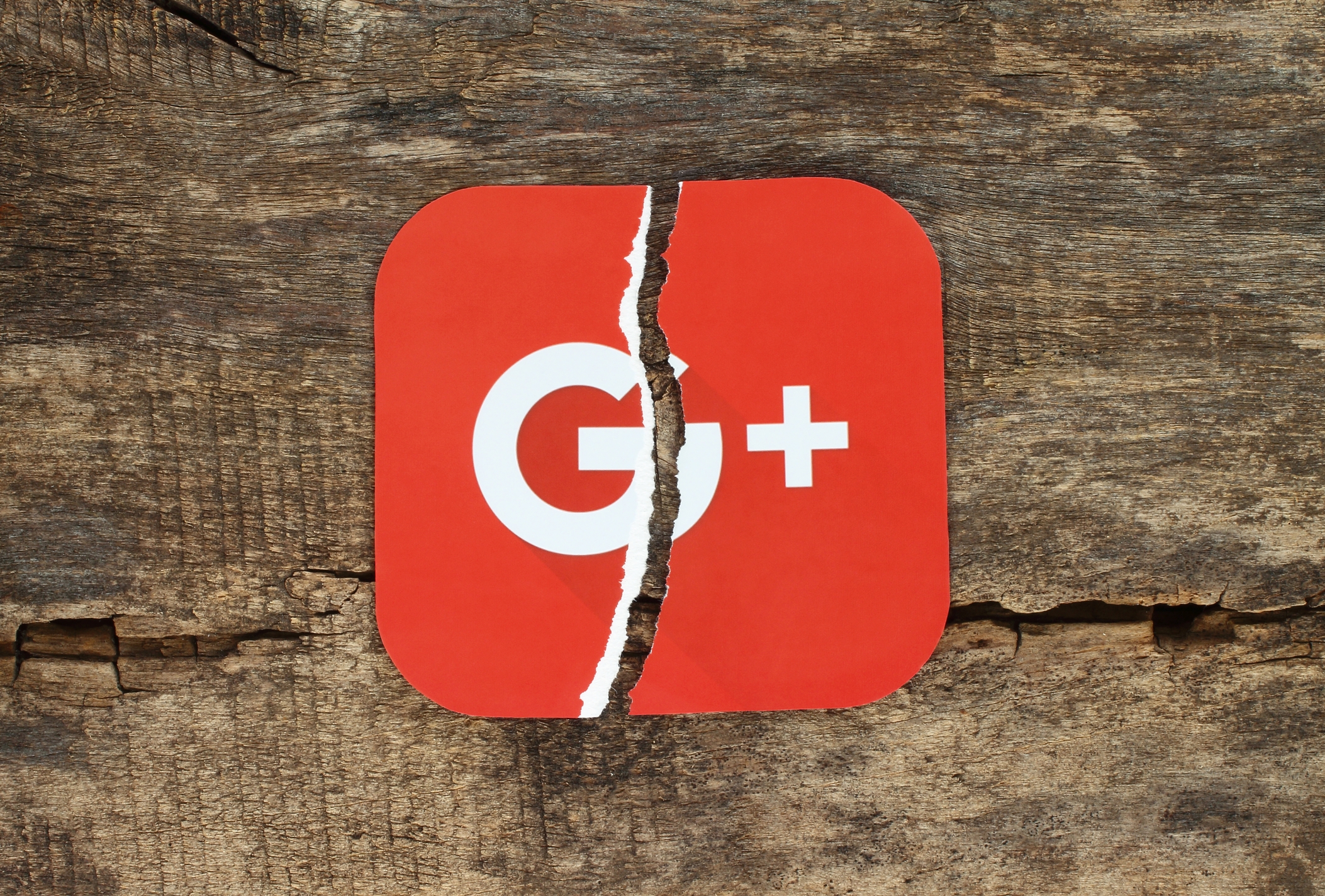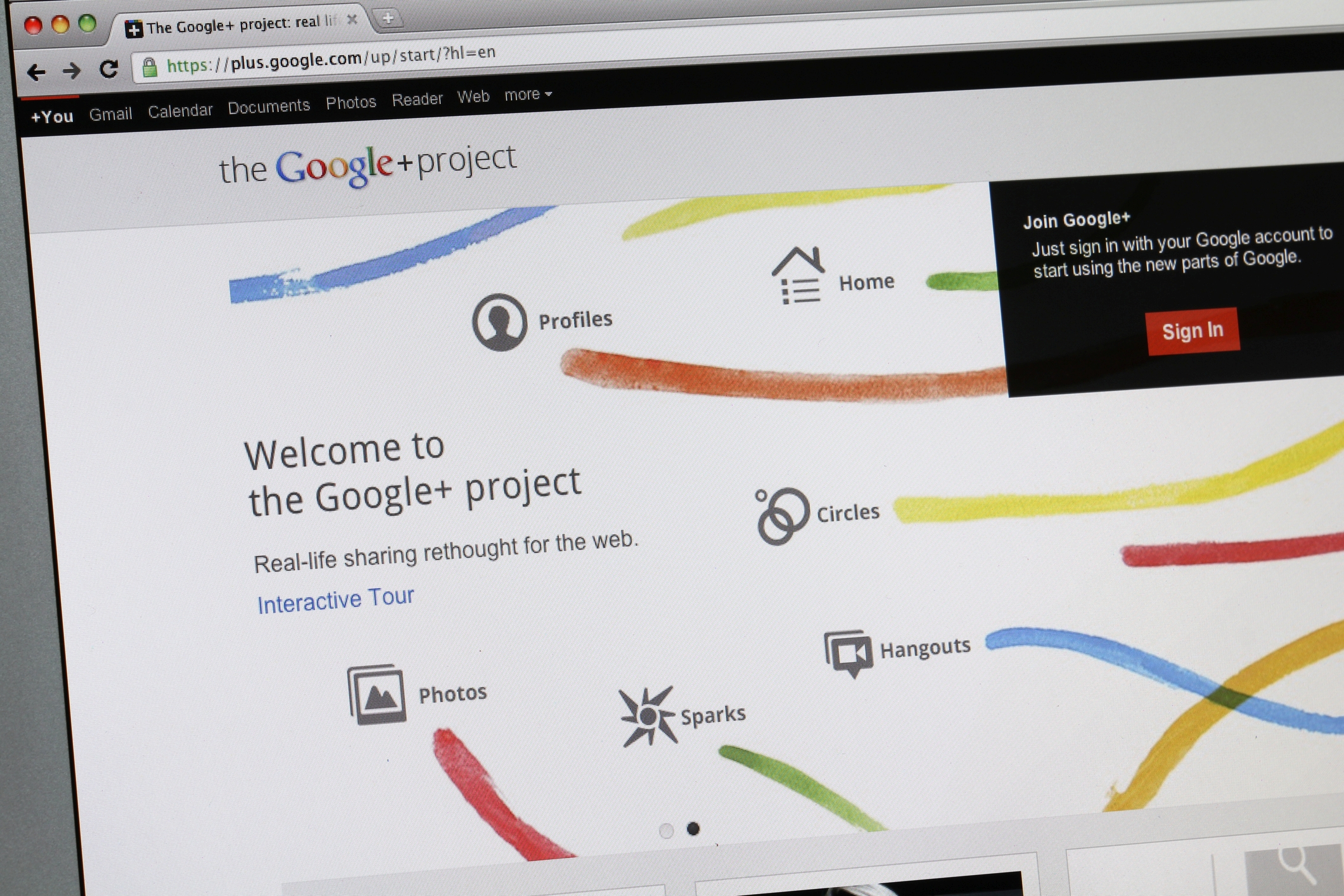2011 was a year of hope for Google. Their biggest prestige project, Google+, was to be made public in the middle of that year. It was supposed to upend the world of social networks, dethrone Facebook and, naturally, collect a plethora of user data. Whatever site users visited, they were inundated with ads for the new platform. But what could have been a record-breaking launch, was soon marred by glitches and growing disenchantment, which is why the once bleeding-edge network will now shut down permanently.

Those who tried it were not too happy. Users were expecting added value compared to Facebook but couldn't find any. It was nice to group friends and family into dedicated circles, if only to ensure aunt Hilda or your boss would see your pictures from the recent zoo trip but not the wild shots from past excessive parties. For quite some time, Google+ lacked a polling feature and only companies warmed up to the new advertising platform. And companies that had a presence on Google+ were featured more prominently in Google's search results. For some reason, the business-oriented side of Google+ will remain in operation.
The reasons for Google+'s failure are fairly easy to understand: lack of interest and security issues. After a period of user growth, fewer and fewer people were using the service and 90% of page visits lasted less than 5 seconds - most likely due to misclicks. Nobody deliberately wanted to visit the site any more. For 8 years, Google had tried to keep the show running and had implemented various usability improvements. Still, Facebook was leaping ahead and younger users began moving to Instagram for sweet visual deception, Reddit for the stories or Snapchat to share their moments with others. Eventually, Google had to face up to the truth: No matter how big the company or the marketing budget, without fruitful ideas, there's no going forward.
 Humble beginnings: All was well at Google+ in 2011
Humble beginnings: All was well at Google+ in 2011
In the light of 2.1 billion Facebook, 1.3 billion WhatsApp and 800 million Instagram users, even long-time Google fans will admit defeat. Initial skeptics had already smelled a rat in 2014, when Google+ CEO Vic Gundotra jumped ship and o ver 1,000 Google+ developers were assigned to other projects. This figure alone shows how much effort had been put into the network. And once you start cutting down the staff, you guessed it, projects become more error-prone. In this case, it was an API (application programmer's interface) that enabled unauthorized access of name, email address, occupation and more. The vulnerability had existed since 2015, with over 500,000 user accounts affected. It was kept secret for almost half a year to avoid further damage to the service's reputation.
Even the farewell email caused confusion as many misread Google+ as Google and assumed their Google account would be deleted on April 2, 2019, spelling the end of not just Google Search but all of Google's services. Some immediately began parking their myriad of photos and other media on their home PCs. The name Google+ had fallen so much into obscurity that recipients didn't even know it existed anymore. If Google hadn't been so vocal about the death of the service, there likely would have been close to no reaction. Instead, Google now had to create a FAQ to calm their startled users. That's what happens when you neglect a product for years, cease all ad activities and then send out billions of emails notifying users of the impending deletion of their associated accounts.
 Google+ today (dramatization)
Google+ today (dramatization)
Today, Google+ is like a ghost town. Old communities that haven't seen visitors in months, profiles presenting 2015's highlights and a few scattered groups that'll stick with the service until the bitter end. As I contact a few users to ask them about their take on the situation, I quickly notice a bit of melancholy as some have made real friends here. Others have already moved to Facebook or are vacillating between Pinterest or the new kid on the block, Vero. None of them had expected Google's social network to fail. For now, Google+ users are packing their digital things since all hosted private data will be irrevocably lost during termination.
The online world has followed this project for many years and with great interest. After all, Google had ideal stating conditions: lots of money, market power and powerful ad facilities - just no real vision for the future. But when there's no discernible need for the many additional features, when users are almost coerced into a paid membership and when the makers themselves lose faith after only three years, the project doesn't deserve to be successful.
What I would like to know: Do you believe the era of social networks is coming to an end? Can you, for example, picture the internet without Facebook?




If only ALL of Google would collapse, The CIA backed company is a threat to the freedom of all Americans.
Really, are any social networks any good? Why don't we just pick up our expensive smartphones and call Aunt Emma or Grandpa Harry? They'll be glad to hear our voice and so will we to hear theirs. That chemistry worked in the past and will work forever if we keep it up.
Dear readers, as an IT company, we employ drastic security measures to protect against outside attacks - but these measures shouldn't prevent you from submitting long comments, naturally. We apologize in case your most recent comments didn't make it through, the underlying issue has now been fixed.
Thanks for the history on Google +. I always thought that Google would eventually drop the Google+ platform. It's an example of Google trying to get into too many areas that don't make a lot of sense. To go after Facebook was tough, but what Google should have done was try to make Google+ work on a similar system. It must be hard to reinvent the wheel, but I feel Google is doing the right thing by killing Google+.
i dot even think ive got google plus,dont even know what it is, i use google to search the net, but also have facebook, so do i do anything,do i loose any work,i dont know,im to ald to find out,
I was a big fan of Picasa, do you know if Google will reinstate it or something like it , once Google+ closes,
Unfortunately, Picasa is history as the company put their focus on Google Photos. That's too bad because the software was fairly decent.
"Do you believe the era of social networks is coming to an end?"
We can only hope.
Until this blog, I had forgotten all about Google's social network site, I didn't really know what Google+ meant (as in the name). I had a quick look way back, but it did not offer much if anything over Facebook.
People love to hate Facebook, but I have found so many people there that I had lost touch with and I really enjoy keeping an eye on what they are doing and the occasional chat with them. If you don't let it rule your life, then I think it is a social site.
Well it's a vexed question isn't it when it comes to marketing; either invent a product or service and then try to convince enough individuals that they 'need' this invention or find out what an appreciable number of people are looking for and then make it and market it to these already willing customers and then build out from there. Looks like Google+ in the long run was a product looking for a customer base that didn't exist.
Oh, so my gmail account remains? That was well explained wasn't it? Pardon my ignorance but what is Google Plus?
Fear not, Gmail will never die because Google would never let so many active email addresses slip through their fingers. All's well!
Thank goodness that pile of rubbish bit the dust. I just hope that the rest of the social network nonsense also disappears.
I just cannot get why people are so keen on providing these companies with valuable personal information in exchange for the dubious benefit of being bombarded with advertising whilst being able to share details of their sad little lives with other sad little lives.
Google+ was launched in 2011, not 2001. A small error in the first word of your article. If possible, edit it. If not, just ignore my comment. Its just for the people who read it. That's all.
Thanks. Of course it's possible and no comment gets ignored on this site. :)
I agree, I was in a small local photo group which worked well, but we could see it was not growing because of various technical problems and glitches.
We have moved to 'MeWe' not sure whether that will survive either.
Thankfully I didn't fall into the Google+ trap.
What did I miss? Nothing!
Social networks come and go. But I don't think Facebook will disappear anytime soon.
I have observed a considerable decline in Facebook and though a long term user of G+ I seldom participated there I think social media networking is waning in popularity. People are looking for a new buzz perhaps the involvement of political parties in Facebook is also causing a backlash. Now people know what dirty tricks politicians have been up to the thinking public are moving away from participation.